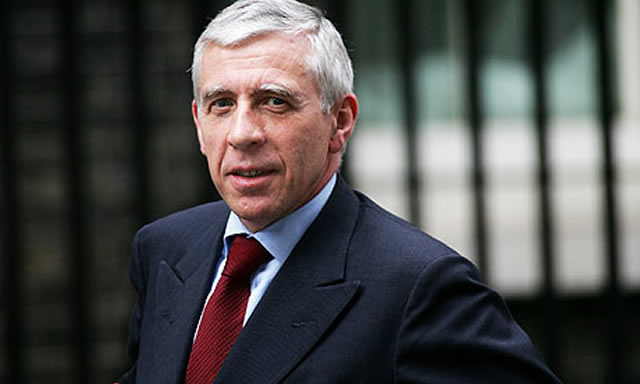Senior UK ex-ministers in ‘cash for access’ claims

LONDON — Two British former foreign ministers faced claims yesterday that they offered to use their positions to help a private company in return for cash following an undercover investigation.Jack Straw, who was Labour foreign secretary when Britain helped invade Iraq in 2003, and Malcolm Rifkind, a senior figure in Prime Minister David Cameron’s Conservative party, were accused after a probe by the Daily Telegraph newspaper and Channel 4 television.
Both deny any wrongdoing but are the latest in a wave of lawmakers to be accused of seeking to profit from offering private companies privileged access to advance their interests.
The allegations come 10 weeks before a knife-edge general election in Britain and threaten to put the issue of political ethics back on the agenda.
In a sting by undercover reporters, the two politicians are said to have offered to act on behalf of a fictitious Hong Kong-based company at a price of at least 6,800 Euros a day.
Rifkind reportedly said he could arrange “useful access” to every British ambassador globally.
Straw is said to have used his parliamentary office for meetings about consultancy work and claimed that he had operated “under the radar” to help change EU rules in work for a commodities firm.
While members of parliament are not banned from topping up their earnings by working for private companies, there are strict rules around how they should do so, including declaring all interests on a public register and not using parliamentary resources in doing so.
Five years ago, Cameron warned that corporate lobbying was the “next big scandal” waiting to hit parliament.
Straw and Rifkind both took to the airwaves yesterday to launch strong defences.
Straw, who has suspended himself from the Labour party, insisted he had been discussing work he might do after stepping down as an MP after the election following 36 years in office.
“There are very, very strict rules here about what members of parliament can and can’t do,” he told BBC radio.
“I absolutely kept not only to their letter but also to their spirit.”
Rifkind, who chairs the parliamentary committee which oversees Britain’s intelligence services, vowed to fight the allegations “with all my strength”.
“I didn’t accept any offer. This was a preliminary discussion. I wasn’t negotiating at all. I’m sorry, Channel 4 are very good at producing selective quotations out of context,” he said on BBC radio.
A spokesperson for Cameron’s Downing Street office said that Rifkind had referred himself to the Parliamentary Commissioner for Standards, which investigates allegations of rule breaking by MPs.
A Labour Party spokesperson told AFP: “We have seen the disturbing allegations against Jack Straw.
“He has agreed to refer himself to the Parliamentary Commissioner for Standards and in the meantime he has agreed the best course of action is to suspend himself from the Parliamentary Labour Party.”
The Telegraph said journalists had contacted 12 lawmakers in the investigation, six of whom did not respond and one who said his contacts were not “for sale”.
The newspaper previously exposed a major scandal over MPs’ lavish expenses in 2009 which revealed that lawmakers had claimed public money for everything from a floating duck house to having their moat cleaned.
Its editorial yesterday said it was vital for MPs “to behave honourably and with total transparency so we can all judge the propriety of their actions for ourselves.” — AFP.









Comments